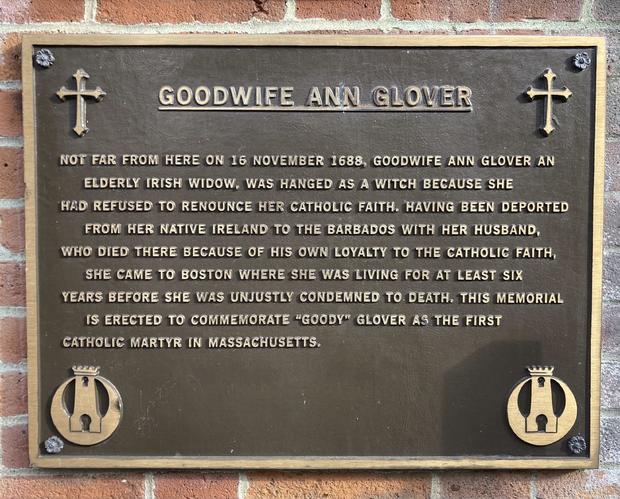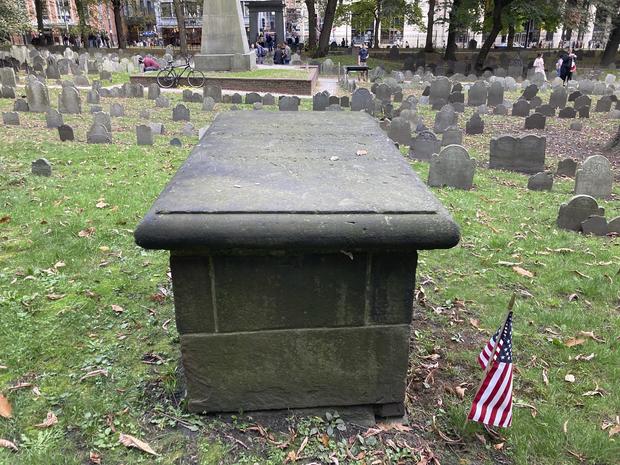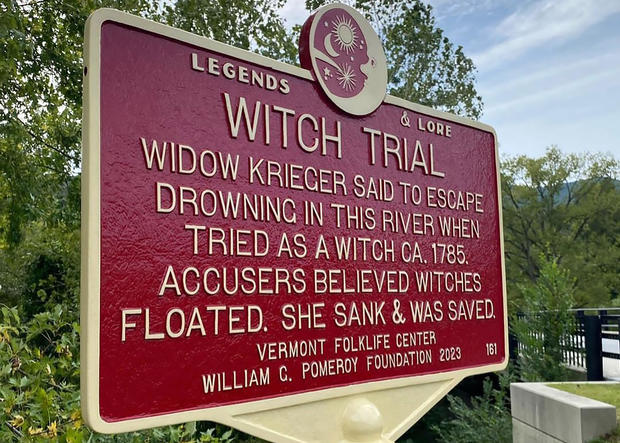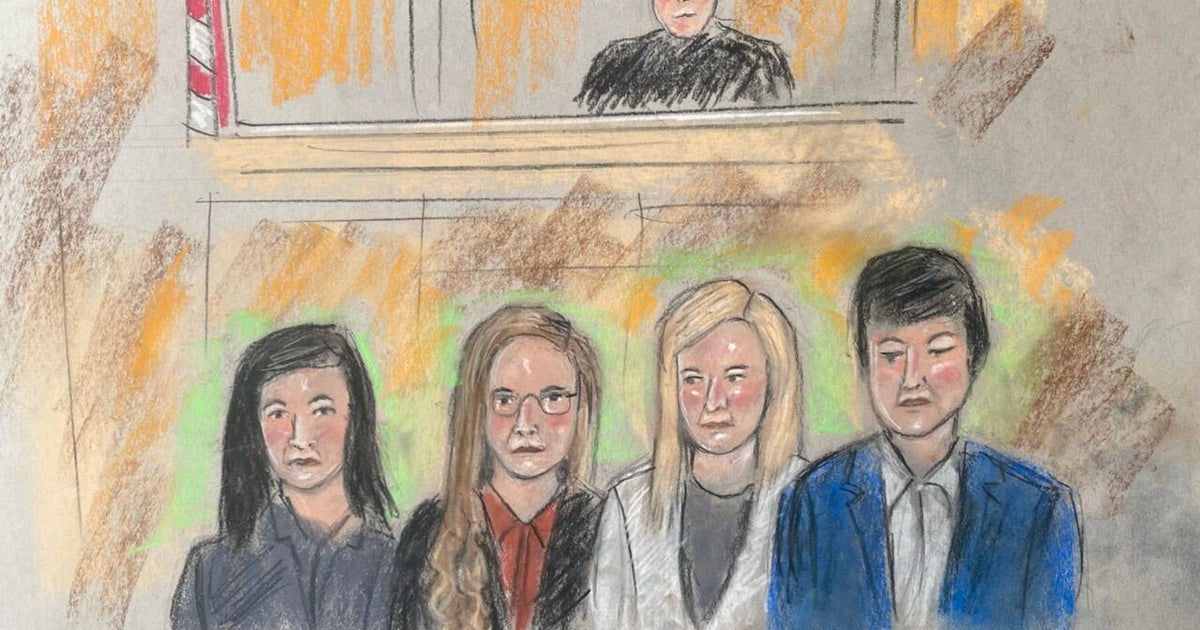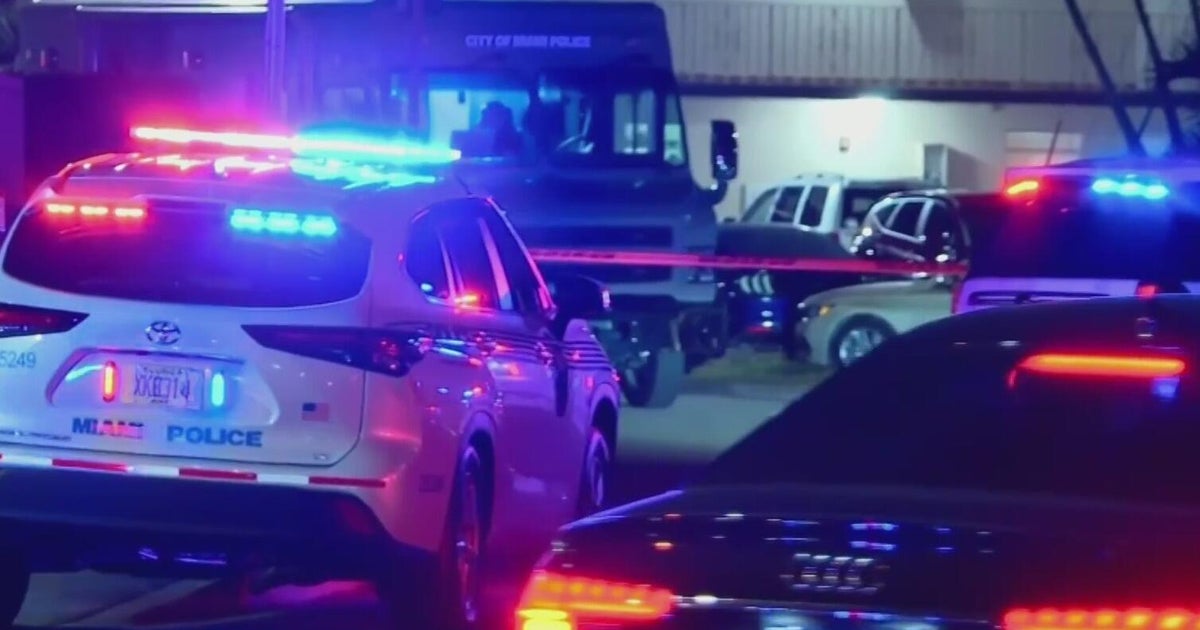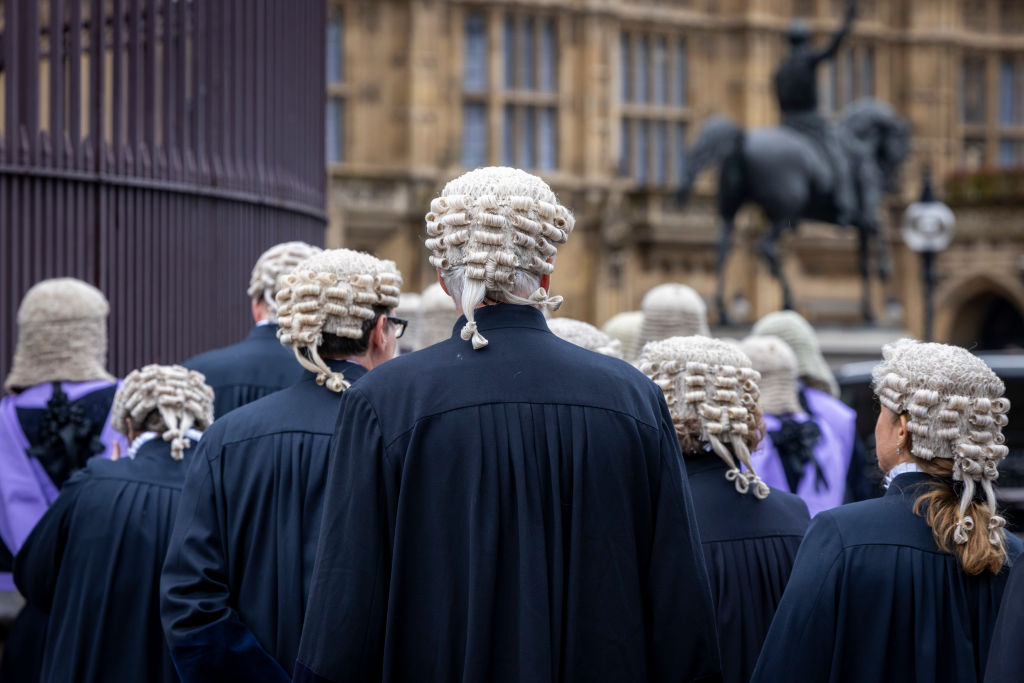Effort underway to clear the names of all accused, convicted or executed for witchcraft in Massachusetts
In 1648, Margaret Jones, a midwife, became the first person in Massachusetts - the second in New England - to be executed for witchcraft, decades before the infamous Salem witch trials.
Nearly four centuries later, the state and region are still working to come to grips with the scope of its witch trial legacy.
The latest effort comes from a group dedicated to clearing the names of all those accused, arrested or indicted for witchcraft in Massachusetts, whether or not the accusations ended in hanging.
The Massachusetts Witch-Hunt Justice Project, made up of history buffs and descendants, is hoping to persuade the state to take a fuller reckoning of its early history, according to Josh Hutchinson, the group's leader.
Hundreds of individuals were accused of witchcraft in what would become the Commonwealth of Massachusetts between 1638 and 1693. Most escaped execution.
While much attention has focused on clearing the names of those put to death in Salem, most of those caught up in witch trials throughout the 1600s have largely been ignored, including five women hanged for witchcraft in Boston between 1648 and 1688.
"It's important that we correct the injustices of the past," said Hutchinson, who noted he counts both accusers and victims among his ancestors. "We'd like an apology for all of the accused or indicted or arrested."
For now, the group has been collecting signatures for a petition -- which as of Tuesday has about 700 signatures -- but hopes to take their case to the Statehouse.
Among those accused of witchcraft in Boston was Ann Hibbins, sister-in-law to Massachusetts Gov. Richard Bellingham, who was executed in 1656. A character based on Hibbins would later appear in Nathaniel Hawthorne's "The Scarlet Letter," published in 1850.
Another accused Boston witch, known as Goodwife Ann Glover or Goody Glover, was hanged in the city in 1688. A plaque dedicated to her is located on the front of a Catholic church in the city's North End neighborhood, describing her as "the first Catholic martyr in Massachusetts." It's one of the few physical reminders of the city's witch trial history.
The witch justice group helped successfully spearhead a similar effort in Connecticut, home of the first person executed for witchcraft in the American colonies in 1647 -- Alse Young. The last witchcraft trial in Connecticut happened in 1697 and ended with the charges being dismissed.
According to the Connecticut Judicial Branch Law Libraries, Bible references were used to assert the crime's legitimacy. It was completely written out of the books by 1750.
Connecticut state senators in May voted by 34-1 to absolve 12 women and men convicted of witchcraft - 11 of whom were executed - more than 370 years ago and apologize for the "miscarriage of justice" that occurred over a dark 15-year-period of the state's colonial history.
The resolution, which lists the nine women and two men who were executed and the one woman who was convicted and given a reprieve, passed the House of Representatives by a vote of 121-30. Because it's a resolution, it doesn't require the governor's signature.
"We can't change history"
For many, the distant events in Boston, Salem and beyond are both fascinating and personal. That includes David Allen Lambert, chief genealogist for the New England Historic Genealogical Society.
Lambert counts his 10th great grandmother - Mary Perkins Bradbury - among the accused who was supposed to be hanged in 1692 in Salem but escaped execution.
"We can't change history but maybe we can send the accused an apology," he said. "It kind of closes the chapter in a way."
Massachusetts has already made efforts to come to terms with its history of witch trials - proceedings that allowed "spectral evidence" in which victims could testify that the accused harmed them in a dream or vision.
That effort began almost immediately when Samuel Sewall, a judge in the 1692-1693 Salem witch trials, issued a public confession in a Boston church five years later, taking "the blame and shame of" the trials and asking for forgiveness.
In 1711, colonial leaders passed a bill clearing the names of some convicted in Salem.
In 1957, the state Legislature issued a kind of apology for Ann Pudeator and others who "were indicted, tried, found guilty, sentenced to death and executed" in 1692 for witchcraft. The resolution declared the Salem trials "shocking, and the result of a wave of popular hysterical fear of the Devil in the community."
In 2001, acting Gov. Jane Swift signed a bill exonerating five women executed during the witch trials in Salem.
In 2017, Salem unveiled a memorial for the victims. The ceremony came 325 years to the day when Sarah Good, Elizabeth Howe, Susannah Martin, Rebecca Nurse and Sarah Wildes were hanged at a site in Salem known as Proctor's Ledge. Nineteen were hanged during the Salem witch trials while a 20th victim was pressed to death.
In 2022, lawmakers exonerated Elizabeth Johnson Jr., clearing her name 329 years after she was convicted of witchcraft in 1693 and sentenced to death at the height of the Salem witch trials. Johnson is believed to be the last accused Salem witch to have her conviction set aside.
Lawmakers agreed to reconsider her case last year after a curious eighth-grade civics class at North Andover Middle School took up her cause and researched the legislative steps needed to clear her name.
Other efforts to exonerate accused witches
Other states have worked to confront similar histories.
In Pownal, Vermont, a town that borders Massachusetts and New York, a dedication ceremony was held last month for a historical marker recognizing the survivor of Vermont's only recorded witch trial. Widow Krieger was said to have escaped drowning in the Hoosic River when tried as a witch in 1785, according to the Legends and Lore marker.
Accusers believed witches floated but Krieger sank and was saved, the marker states.
The Sept. 16 dedication ceremony included a witches' walk, in which people dressed as witches walked across a bridge to the marker site along the Hoosic River.
"I am sure Widow Krieger would have been quite happy to join our witches' walk today in defiance of those who feel they have the right to accuse someone they feel looks different, acts different or has a personality that they might find odd, of being a witch," said Joyce Held, a member of the Pownal Historical Society, which worked with the Bennington Museum to get the marker.
In 2006, former Virginia Gov. Tim Kaine gave an informal pardon to Grace Sherwood, a widowed midwife who was blamed by neighbors for ruining crops, killing livestock and creating storms and subsequently accused of being a witch. With her hands bound, Sherwood was thrown into a river to see if she floated, which was purported to indicate guilt. She managed to set herself free and spent seven years in prison.
Other countries have attempted to atone for a history of persecuting people as witches. Last year, Scotland's prime minister issued a formal apology to the estimated 4,000 Scots, mostly women, who were accused of witchcraft up until 1736. Of the 4,000, about 2,500 were killed. A Scottish member of parliament last year called for posthumously pardoning them.
